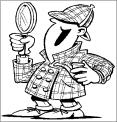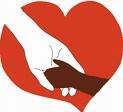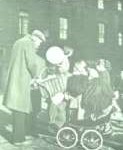MOCAVO: The Search Engine for Genealogy
February 9, 2012 by ramona
Filed under Articles, Genealogy Research Resources, Latest News, Sharing Genealogy Information
 Mocavo is turning out to be big news for genealogy. This FREE genealogy specific search engine was launched last spring and has been growing rapidly ever since. Now, with Ryan Hunter a former Wall Street Analyst at the helm and well-known genealogist Michael Leclerc coming on board, the future of Mocavo looks bright indeed.
Mocavo is turning out to be big news for genealogy. This FREE genealogy specific search engine was launched last spring and has been growing rapidly ever since. Now, with Ryan Hunter a former Wall Street Analyst at the helm and well-known genealogist Michael Leclerc coming on board, the future of Mocavo looks bright indeed.
Mocavo offers an index of over four billion names and is reported to be the fasted search engine in the industry.
Mocavo for Genealogy
If you ask Mocavo how they measure up to Google, they will tell you that Google only indexes five percent of the webs genealogy content. This leaves millions of pages of family tree research information with no way to be searched. Mocavo is on a mission to “make searchable and index” ALL free genealogy information on the internet.
Thus far, Mocavo includes National Archives, Ellis Island, Library of Congress and Find a Grave to mention just a few. Additionally, Mocavo will lead you to an extensive list of Family Trees and individual genealogy sites. While a Mocavo basic search is free an upgrade to Mocavo Plus will increase your search power.
Some of the features of the Mocavo Plus upgrade include:
Wild Card Search
If you are working off an old document and can only make out part of the name, just enter that and Mocavo will return a list of possible hits
First Name Alternatives
Just enter Liz and get returns for Lizzy, Elizabeth, Betty, actually any nickname alternative.
Sounds Like
We all have run across the many different spellings possible for an ancestor’s name. With Mocavo just enter the name as you know it. For instance, entering Abuda will return several combinations such as Habuda, Habood, Aboud etc. It saves from having to run a search for each.
These features along with several more, allow genealogist to conduct smart searches that save a lot of time. Of course, there is a fee for Mocavo Plus membership but you can opt in for a yearly membership or just go month to month at a reasonable price.
Once a member you will also have access to tools for publishing your own Family Tree that will let you share and collaborate with others.
If you have already tried Mocavo, Genealogy Beginner would love to hear about it. Join us on the Genealogy in General Forum and share your thoughts with other Genealogy Beginners.
Image Credit: esutera via Photobucket
Google Books and Your Family Tree
February 6, 2012 by ramona
Filed under Articles, Genealogy Technology, Introduction to Genealogy, Latest News, Lesson 8 Articles
 Google Books can be an amazing resource for beginning genealogists. Whether you are looking for information specific to your family tree, something related to a current research interest like military records or general information on genealogy; Google Books is a good place to start.
Google Books can be an amazing resource for beginning genealogists. Whether you are looking for information specific to your family tree, something related to a current research interest like military records or general information on genealogy; Google Books is a good place to start.
To Find Google Books:
- Go to Google.com and hit the little arrow at the top of the toolbar next to “more”
- In the drop down menu click on “Books”
You should now be on the Google Books, search page.
Search Google Books for Genealogy Treasures
It is easy to find books with Google Books; all you do is enter a keyword into the search box. For example:
When I enter “Military Records”, I get about 1,860,000 results, including:
· Military records: Confederate soldiers, 1861-1865
· U.S. military records: a guide to federal and state sources
· Army Records: A Guide for Family Historians
A general search under “Genealogy” brings about 6,750,000 results, including:
· Genealogy Online For Dummies
· The Online Genealogy Handbook
· Genealogy: a practical research guide
Of course, you can alter your search terms to be location specific or even surname specific.
Using Google Books to find a specific ancestor can really pay off as well. Using my ancestor “Marin Boucher”, I find the following:
The Boucher heritage
books.google.caLaurent Boucher – 1999 – 298 pages – Snippet view
This map also shows that Marin Boucher and two of his sons, Francois and Jean- Galleran, had settled near the present village of Chateau-Richer about seven miles from Quebec City: It is worthwhile noting that many of the colonists whose …
“200” family trees: from France to Canada to U.S.A.
books.google.ca – Snippet view
The above Jean Galeran Boucher was the son of Marin and Perinne Mallet who were married around 1628 at St-Langis-les-Mortagne,France. Marin Boucher’s parents were unknown but he came from Mortagne.He was the brother of Jeanne who was …
If you want to see information about a book listed just click on the title of the book. By doing this, you may also find (if the author has given permission) “snippets”. Snippets are areas of the book specifically related to you search terms. Snippets will tell you how many pages in the book match your search terms.
When you find a book you are interested in you can select the “Buy this Book” option or “Find this book in a library” and be directed to a library where you may borrow it. Sometimes, if you are lucky the book you find may be out of copyright and available free online.
Another search option you can try with Google Books is “Full View Books”. Select this option when you only want to search for books you can fully view online.
Genealogy Beginner encourages you to try using Google Books for your family tree research. If you find any amazing books, please share your discoveries with other genealogy beginners on the Discovery Panel forum.
Image Credit: someofthisandthat via Photobucket
Genealogy, Adoption and DNA
January 31, 2012 by ramona
Filed under Articles, Latest News

On January 23, 2012, the New York Times released a story titled “With DNA Testing, Suddenly They Are Family”. The story written by Rachel L. Swarns, is the tale of an adoptee who used DNA testing to find living blood relatives.
In her story, Swarns writes, “A growing number of adoptees, now in the thousands, are turning to DNA testing companies in hopes of piecing together the puzzles of their beginnings.”
The subject of the story Khrys Vaughan, tells how at age 42 she discovered that she was adopted, a revelation that made her question her identity. Having seen an advertisement for DNA testing she signed up and five weeks after submitting her samples, she was informed of her results. Results, which came with the names and e-mail addresses of distant cousins, many who had submitted their DNA samples for genealogy research. This month Mrs. Vaughan met a new third cousin for the first time.
Of the experience, Mrs. Vaughan states, “Somebody is related to me in this world,” she said. “Somebody out there has my blood. I can look at her and say, ‘This is my family.’
With genetic testing growing in popularity and the costs for testing dropping, more and more people are opting to take this route; both for genealogy research and as adoptees hoping to identify blood kin. Additionally, DNA testing companies are beginning to amass enough data that they are now able to help adoptees find family.
Some adoption experts criticize the practice stating that quite often; the relationships are somewhat of a stretch. Adoption expert, Elizabeth Bartholet of Harvard Law School is on record stating,
“Adoptees would be better served by nurturing the relationships they already have.”
Many comments left on this story by adoptees, show strong disagreement with Ms, Bartholet’s opinion.
Visit With DNA Testing, Suddenly They Are Family to read the full article and comments.
Image credit: tahbasco Via Photobucket
Adoption and Genealogy: A Primer for Adoptees
January 29, 2012 by ramona
Filed under Articles, Getting Started in Genealogy, Introduction to Genealogy, Latest News
 Growing up in a family with a very healthy and robust “Scotts” pride brought the significance of family history home to me at a young age. From my family I gained an awareness of ancestry. Additionally, I experienced the sense of connection that only comes from knowing your ancestral roots…from the unique perspective of an adopted child.
Growing up in a family with a very healthy and robust “Scotts” pride brought the significance of family history home to me at a young age. From my family I gained an awareness of ancestry. Additionally, I experienced the sense of connection that only comes from knowing your ancestral roots…from the unique perspective of an adopted child.
As an adopted child, no matter how wonderful my family was at involving me in every aspect of their proud heritage, I was always aware that it did not really belong to me. I was equally aware that one day I wanted to trace my own lineage.
Through countless conversations with other adoptees, I know that this is a common theme. As a result, I have come to believe that there is an intrinsic yearning in all of us to seek out and understand our ancestral and cultural origins.
Adoption is a Unique Genealogy Challenge
Genealogy for adoptees presents unique challenges on both emotional and practical levels. Among them are restrictive laws, ethical considerations, rights to privacy and even a sense of taboo associated with an adoptee attempting to trace their family tree.
Not least, among these concerns is the need to be sensitive to the feelings of an adoptive family, who may or may not support the wish to uncover a separate family history. Having said this, it also bears mentioning that an adoptees wish to uncover their genetic origins does not presume a desire to know their birth parents.
Still, out of a sense of loyalty and sometimes a guilty feeling of betrayal, sadly many adoptees wait until their adoptive parents have passed on before beginning any research. Clearly, genealogy for adoptees is a complicated matter that requires a good deal of careful consideration, patience, understanding and support.
If you are an adoptee, who wants to research your genetic family tree here are a few suggestions you may want to revue before beginning.
Seek Support
First Steps
Before you can begin your research, you are going to need a little basic information; you can start by asking yourself the following questions:
Prepare Yourself
Once you have accomplished all of the above steps, you will have gained some understanding of what you are taking on. You will also be far more prepared to begin your research in earnest.
Genealogy Beginner supports the efforts of all adoptees in their quest to discover their roots. Join us on the Ask a Genealogist forum where your questions about genealogy and adoption are encouraged by our resident genealogist, who is also an adoptee.
Image Credit: Nath_013 via Photobucket
Writing Your Family History Book
January 28, 2012 by ramona
Filed under Articles, Family History, General Tips, Latest News, Lesson 3 Articles, Preserving Your Family Tree
 Early in January Genealogy Beginner asked our facebook friends what exciting genealogy projects you had planned for 2012. Top among your answers were writing and publishing a family history book.
Early in January Genealogy Beginner asked our facebook friends what exciting genealogy projects you had planned for 2012. Top among your answers were writing and publishing a family history book.
Genealogy Beginner thinks that is an excellent goal. To help support you in reaching it we decided to dedicate some time to providing information that will bring you closer to achieving it.
Getting Started on Your Family History Book?
Perhaps the hardest thing about writing a family history book is simply getting started. Your first step should be to decide who your family history book is for? Knowing this will help you resolve what form your family history book will take.
- Will it be a surname book, a book for yourself, are you planning it as a gift for other family members or did you want to offer it more publicly?
- Will it trace the line of a single family or are there going to be interconnecting trees?
- Do you have a set number of generations you wish to include?
- Are you dedicating it to a single ancestor?
- Will you be including graphic data such as family photographs and scans of source documents?
- Will you be collaborating with another family member?
- Will you be including stories, family lore or famous family recipes?
With the above questions answered, you will have a better idea of the type of book you want to write.
Memoire: An account of the personal histories based on the memory of the author.
Biography: A focus on one specific ancestor.
Narrative: The story of a group of ancestors or a complete family line.
Knowing the answers to these questions before you begin will help you with organizing the project. More importantly, it will keep you from becoming overwhelmed and make your project run smoothly from start to publish.
Note: Genealogy Beginner suggests, that you begin to write your book before your research is complete; for the reason that, if you are like most other genealogy researchers…your research will never be finished.
Organizing your Family History Book
Once you have settled on the form your book will take, the next logical step will be to organize your collected data. You can take several approaches to this process.
Step one:
Organize within the chronological order of your family tree beginning with the current generation. On the other hand, you may want to begin with the earliest generation you have found and work your way back to the current generation. Working in chronological order will help work through any holes you may have in your research.
Step Two:
Write a tentative outline for your story. You can include as much or as little detail as you wish, the point to remember here is to remain flexible, as you are likely to do a lot of editing along the way.
Step Three:
When you have decided on your organizational process, begin making files for each of your subjects. For instance, a master file for each family group and sub files for the individuals within the group.
Each sub file should contain:
- Cards, letters, photos, newspaper clippings and other memorabilia for that individual
- Notes on interviews
- Notes on social history (What was life like in their time, were there any historical events taking place near them etc.)
Write Your Family’s Story
Here are some basic writing tips to help get you started and keep you going.
Draw up a writing schedule
Life gets busy and when it does, it is easy to put off your project. Drawing up a writing schedule and sticking with it will help you keep your project from being placed on the back burner.
Write a Draft
All writers know that every story has a beginning, middle and end. When you begin to write, start with a draft that outlines this. Do not worry about grammar and punctuation at this point just get your outline down on paper. Later as you start your rewrite, you can make corrections and begin to include detail. Final corrections can be made when you edit.
Final Notes:
Some family members may be more private while others may simply feel strongly that some stories ought to be omitted altogether. For these reasons, the following two points should be well remembered when writing your family history.
- Be careful about including any stories that could be upsetting to your family.
- When writing your family history book keep detailed information about living ancestors out of it, unless you have their written permission to include it.
Once you have finished writing your story and before you publish, it is time to edit. Join us on the forum Genealogy in General for your final edit checklist. Don’t forget to check back with us next week for Genealogy Beginners article on publishing your family history book.
Image Credit : roonil_waslib via photobucket
Using Google Scholar for Genealogy
January 23, 2012 by ramona
Filed under Articles, Genealogy Technology, General Tips, Introduction to Genealogy, Latest News
 Among the many tools available to genealogy researchers, one that beginning genealogists may not be as familiar with is Google Scholar. Although this wonderful tool is not likely to lead you to any major records databases, it can however direct you towards relevant-to-you information sources for your family tree research.
Among the many tools available to genealogy researchers, one that beginning genealogists may not be as familiar with is Google Scholar. Although this wonderful tool is not likely to lead you to any major records databases, it can however direct you towards relevant-to-you information sources for your family tree research.
Using Google Scholar will also save you a good deal of time. Time you may otherwise spend sifting through millions of hits from common search engine queries.
Google Scholar for Genealogy
Google scholar is a tool that will let you conduct a broad search of scholarly materials possibly containing information on your ancestors.
Google Scholar provides a scholarly listing of:
To give you a better idea of what you may actually find by using Google Scholar as a search source lets first look at one of my ancestors, Marin Boucher. Then try it again with your own research interests.
I know that Marin Boucher was an early settler in New France (what is now modern day Quebec Canada). I can find a great deal of record sources for him through online databases. However, using Google Scholar may lead me to look for additional information I may not otherwise find or even consider.
To find Google Scholar:
You should now be on the Google Scholar, search page.
To get best results with Google Scholar it is best to conduct a narrow search by typing “Marin Boucher” into the search bar including the quotation marks. You will get a good list of hits; however, most of them will be in French.
If you do not speak or read French, You can opt for “Search for English results only” at the top left corner of the page or use the Google Translate tool to read any information you find.
Looking down the list of hits, you will notice that some of them are underlined. The underlined returns will take you to an information source. If you are lucky, the source will be a free online book. Some of the returns (not underlined) will be citations or additional sources such as related articles, PDF documents or directories.
For Marin Boucher we find all of these information types. Because they are all in French, I have used Google Translate before listing a few of them here.
Book:
[BOOK] A Canadian parish in the seventeenth century
[HTML] from google.ca
HR Casgrain – 1880 – books.google.com
… who was buried in the church. Her neighbor, Jean Galleran Boucher, was a family
native of Mortagne. His father. Marin Boucher is one of the oldest settlers
of New France. In the year 1625, it is found …
Cited by 8 – Related articles – Find in AMICUS
PDF Document:
Citation:
[QUOTE] Marin Boucher in Canada: direct descent
Genealogical Society Lanaudière … – 1997 – Genealogical Society …
Find in AMICUS
Related Article:
Related Article and PDF Document:
[QUOTE] Marin Boucher in Canada: direct descent
Genealogical Society Lanaudière … – 1997 – Genealogical Society …
Find in [PDF] “The French-speaking Quebec from 1608 to 1960”
[PDF] from banq.qc.ca
H Charbonneau – The population of Quebec from yesterday to tomorrow, …, 1991 – bibnum2.banq.qc.ca… Jean Guyon (Dion) and Mathurin Robin, Zacharie Cloutier and Sainte Dupont, Jacques Archambault and Françoise Tourault, Marin Boucher, Noel Lee, Abraham Martin, Pierre Miville, that some of the founders of the most cele-bers, the strain that we …Related articles – View as HTML – All 2 versions
From this short list, you can see that I have found several sources of information on my ancestor including:
- A book that is available free on Google Books
- A citation that will lead me to additional information
- A related article available in PDF
There were far more returns than those listed here and although I would likely have come up with these leads with a common Google search it would have taken me far longer to sift through the Google hits to find the most relevant.
Genealogy Beginner encourages you to try using Google Scholar for your family tree research. Additionally, we would love to hear your Google Scholar success stories; share with us and other beginning genealogists on the Discovery Panel forum.
YouTube, Genealogy and the National Archives
January 13, 2012 by ramona
Filed under Articles, Latest News
 In a press release January 4, 2012 The National Archives announced the launch of online “how-to” workshops. Available on the National Archives YouTube Chanel
In a press release January 4, 2012 The National Archives announced the launch of online “how-to” workshops. Available on the National Archives YouTube Chanel
The workshops are to cover genealogy research topics on:
- Census
- Immigration
- Military records
Diane Dimkoff, Director of Customer Services for the National Archives says of the series “The National Archives is proud to make our most popular genealogy lectures available online and ready for viewing by anyone, anywhere, at any time,”
The workshops, which are a series of video shorts, will cover the use of National Archives records for genealogical research. The videos are produced in lecture format and lead by a team of experts.
The line up includes:
Genealogy Introduction: Military Research at the National Archives: Volunteer Service
The compilation of military service records held at National Archives.
Lead by expert John Deeben
Genealogy Introduction—Military Research at the National Archives: Regular Service
A description on the use of Army and Navy registers of enlistment and rendezvous reports.
Lead by expert John Deeben
Genealogy Introduction—Military Research at the National Archives: Pension Records
A discussion on the use of pension records to research military service (1775-1916).
Lead by expert John Deeben
Genealogy Introduction—Immigration Records at the National Archives
An overview of immigration records (1800-1957).
Lead by experts Katherine Vollen and Rebecca Crawford
Genealogy Introduction: Census Records at the National Archives
Tips and strategies for researching US Federal Census (1790-1930).
Lead by expert Constance Potter
Genealogy Beginner says,” If you are looking for very specific information on the dates provided tune into the National Archives on YouTube”.
Do you want to know what other great genealogy information you can find on YouTube? Join us on the forums “Genealogy News and Events” for Some of YouTube’s Best in Genealogy.
Image Credit: erashe08 via Photobucket
A Sustainable Family Tree
January 8, 2012 by ramona
Filed under Family History, Latest News, Preserving Your Family Tree
 This week Genealogy Beginner attempts to unite our past and present…with hopes for a brighter future…through the wisdom of our ancestors.
This week Genealogy Beginner attempts to unite our past and present…with hopes for a brighter future…through the wisdom of our ancestors.
No one who has spent time needed to make a family tree will deny the fact our ancestors had it rough, eking out a living through total self-sufficiency. From cotters in an old world – to – settlers in a new one, it was imperative to survival that they be conservationists by nature.
Before it became a socially conscious practice or a global concern, Great, Great Grandma and Grandpa were reducing and reusing as part of their daily lives. Sustainability was not a catch phrase; it was an accepted part of life.
Perhaps their reasons for recycling are different from our own. History, shows recycling is customary in times of shortage. Even in this, there are similarities between their time and ours…the common theme; long- term survival.
How eco friendly were our ancestors?
A Family Tree of Conservationists
Water is a good place to start. In the simplest possible terms water had to be conserved as wells could run dry.
Rain Barrels:
– Collected rain water from runoff
– Stored in barrels to use at a later date
– Was used to do laundry
– Rainwater was considered excellent for washing hair (makes it very soft)
Our ancestors were also wise when it came to keeping their water sources clean and healthy. They knew how important it was to keep pollutants away from the family’s water supply. Thus, they positioned livestock and other contaminants down hill from the well.
A Greener Genealogy
We have also learned lessons from our forefathers on sustainable energy uses in our natural environment. Ancient Chinese engineer Tu Shih, immortalized in a text from 31 AD, invented a water-powered reciprocator used in the casting of iron for agricultural equipment. The short story, casters and smelters used running water to operate billows long before we developed hydroelectric dams.
Repurposing Family History
From Imperial Byzantium, throughout the Roman Empire, sailing past medieval Vikings to Victorian England and into the Great Depression; archeological and historic record proves recycling reined supreme within our predecessor’s lifetimes.
The Byzantine
In the heart of the Byzantine is the ancient city of Sagalassos (current day Turkey) where archeologists found evidence of an intensive glass recycling program.
The Romans
The Romans recycled metal turning bronze coins into statues. In addition, Romans used recycled water for their sewer systems.
The Vikings
Famed marauders immortalized in Saga, we do not think of the early Norse as being particularly eco friendly…or even friendly. However, in an 11th century site located in the city of York, England, is evidence of a makeshift recycling center. True to the Viking spirit, the site was for the reprocessing of weapons after battle.
The Victorians
The most avid recyclers, ancestors of the Victorian era provide the best examples of reduce, reuse and recycle.
· Historians commonly have a difficult time finding examples of Victorian clothing because garments were passed down from lady to maid to daughter and finally given to second hand shops.
· If your Victorian ancestors kettle had a leak it would be repaired, worn bed sheets were “sides-to-middled” (a method of repair), in addition worn collars and cuffs of clothing would be turned and the good side used.
An unsung hero of recycling, the familiar Rag and Bone Man, would go from home to home collecting:
Rags, which he would sell:
-To make Shoddy Wool (used to make military uniforms)
-Have turned into rag paper
-Be used to enrich soil for growing hops
Bone, which he would sell:
-For making glue
The Great Depression
During the depression, things needed repairing not replacing. The depression heralded a culture of making items we could not buy and everything from lumber to wire to old nails were repurposed.
Growing our Roots
With the current popularity of rooftop/balcony gardens and the backyard chicken coop it seems that we have come full circle. It would be honest to say our precursors made a practice of these things either because they did not have easy access to a grocer or because they could not otherwise afford a healthy diet. Anyone who has seen the price of organic eggs may agree, we have not come so far from our ancestors after all.
Join us on the Forums, “The Discovery Panel” for a rare peek into the past where Genealogy Beginner shares some green cleaning tips from a Victorian Era cleaning Manual.
Image Credit: des_enzano via Photobucket
Genealogy Journeys and Heritage Vacations
January 6, 2012 by ramona
Filed under Genealogy Research Resources, Latest News, Sharing Genealogy Information
 Who said time travel was not possible?
Who said time travel was not possible?
A vacation to explore your ancestral roots is an exciting trend and “destination past” is catching on in a big way. Modern genealogy buffs are setting off for – far off distant shores – by the dozens and there is no shortage of options from which to choose.
Whether you are the type who prefers to plan your own travel, someone who would rather sign up for an all-inclusive package or a social soul with a preference for a Family Tree Tour, you are sure to find what you are looking for.
Just look to the numerous travel organizations specializing in genealogy vacations for help, they will be more than happy to offer their assistance.
- Family Tree Tours has just released their line up of 2012 tours with five fantastic destinations.
- European Focus allows you to set your own schedule and destination. They take care of the travel details, including making advanced contact with pastors, archivists and local historians.
Maybe you have a precise destination in mind. No worries, you can book your trip from among a number of country or county-specific family tree travel companies across the globe.
Family Tree in a Suitcase
Have you plotted a course for your heritage adventure? If you have, it is essential to spend some time planning in order to make the most of your trip, particularly if you are going to travel independently.
Once you have decided on the type of trip you want to take, it is time to assess what you need to accomplish. Here are some things to think about… just to get you started.
Preparing for your Genealogy Journey:
- Have you decided what branch of your family or ancestor to focus on?
- Are you familiar with your destinations record sources?
- Have you checked out the official web page(s) for your destination?
- Do you know and have you recorded the contact information for:
- county courthouses
- libraries
- record repositories
What about the churches or cemeteries you wish to visit, do you know their hours?
There is always much to do in preparation for any kind of travel; however combining a vacation with genealogy research takes a little extra consideration. Do not get caught without needed research tools so far from home.
Join us on the forums: Genealogy News and Events for your Genealogy Journey Planner and list of Family Tree travel essentials.
Image credit: Suzann_04 Via Photobucket
Five Genealogy Resolutions You Can Keep
January 5, 2012 by ramona
Filed under Articles, Latest News
 Are you busy planning your genealogy projects for 2012? If you are, it is likely that a few genealogy resolutions have been running through your head. The trick to resolutions is making them stick and that takes a little planning and organization.
Are you busy planning your genealogy projects for 2012? If you are, it is likely that a few genealogy resolutions have been running through your head. The trick to resolutions is making them stick and that takes a little planning and organization.
Therefore, start your 2012 genealogy resolutions with:
Getting Your Family Tree Organized
Lesson three in Genealogybeginner’s, Beginner Introductory Course Series states:
“The wise genealogist knows the value of good record keeping; once you begin it does not take long before you have accumulated large amounts of data, so much that it is not uncommon to lose track of what you have. That is why; before you go any further, it is time for you to set up your filing system. “
If you are like me this is one of those jobs that lands in the –one of these days – pile. However, as the old saying goes, “A job started is a job half done”. Get started by taking this lesson as part of the complete introductory series of lessons from Genealogybeginner. It is the best motivator for ticking number one off the genealogy resolutions list.
Perform an Act of Genealogical Kindness
This is a great way to start your new year! No matter how new you are to genealogy, everyone can do something to help someone else. Whether it is an offer to do a lookup, volunteering to help with an indexing project or just sharing something you have learned. Your random act of genealogical kindness could mean the world to a fellow ancestor hunter.
Get Involved in a Genealogy Group
Whether it is just becoming active on a Family Tree forum or joining a Genealogy Facebook page, getting involved in a genealogy group or society keeps you motivated and is a great source of support.
Publish Your Genealogy and Family History
There are now so many options to publishing your family’s unique story; it is too easy not to do. One of my favorite genealogy publishing sites is Stories to Tell, who will walk you through the process from draft to publication.
Interview Your Oldest Living Relative
If you keep no other genealogy resolution, make sure you keep this one. It always surprises me how much you learn about people after they are gone.
I learned this lesson a little too late in one instance when an uncle I had always meant to interview passed on. At his memorial, I learned that he was the 1958 All-Around Cowboy at the Calgary Stampede, was one of the first Blue Jean models and had been inducted into the Cowboy Hall of Fame. For all my years of knowing him, I never knew this.
Genealogybeginner wishes you a happy 2012, may you break down all of your brick walls, enjoy the warmth of family, learn something new and have a very successful year of ancestor hunting.
Image Credit: Khant Sai via Photobucket
